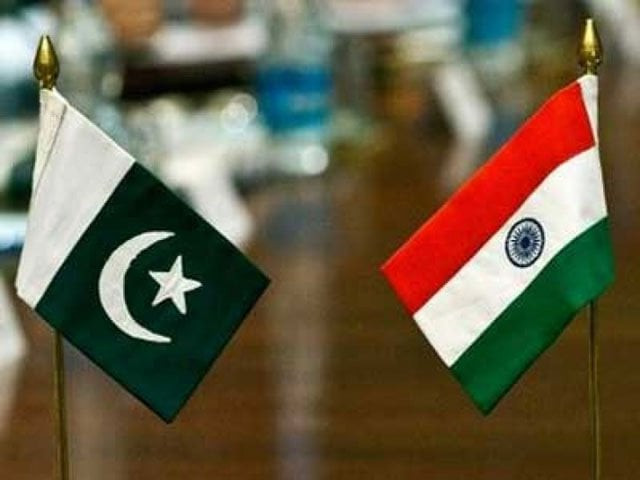Pakistan, India forgo I-Day greetings
Amid escalating tensions, leaders abandon traditional letter exchange practice

The relationship between Pakistan and India continues to worsen as leaders of the nuclear-armed neighbours have abandoned the longstanding tradition of exchanging greetings on their respective independence days
Pakistan celebrated its Independence Day on Monday, while India marked its Independence Day on Tuesday.
Although the armed forces of both countries exchanged sweets on August 14 and 15 as a symbol of goodwill, the customary practice of exchanging letters at the government level was discontinued.
The decision highlights the deteriorating state of the relationship between the two nuclear-armed neighbours.
The last time the two countries exchanged letters was in March 2021 on Pakistan Day when Indian Prime Minister Narendra Modi wrote a letter to his Pakistani counterpart seeking a “cordial relationship with the people of Pakistan.” Imran Khan responded in kind. The letter diplomacy came on the heels of two countries agreeing on renewing a 2003 ceasefire along the Line of Control (LoC).
Read Pakistan, India border forces exchange sweets
Previously, Modi also wished Pakistan on Independence Day on Twitter while Pakistani leaders reciprocated the gesture.
However, the two countries and their leaders no longer wished each other on such occasions, something observers believe shows the current state of ties between the two neighbours.
The relationship between Pakistan and India saw a dip in August 2019 when India revoked the special status of the disputed Jammu and Kashmir territory. Pakistan, in reaction to the Indian move, downgraded diplomatic ties with India. It suspended bilateral trade and took other measures to protest the unilateral Indian move on Kashmir.
The two countries did make an effort to bring some normalcy to their ties when senior officials from both sides held a series of meetings in the United Arab Emirates (UAE) in late 2020. Those contacts led to the renewal of the ceasefire that has remained intact.
As part of efforts, both sides were supposed to gradually improve their ties with the restoration of diplomatic ties to pre-August 2019 and the resumption of bilateral trade.
Read more India assures Pakistan WC squad ‘equal’ security
Those steps hinged on India announcing certain measures on Kashmir. The process could not move forward as India did not take those steps while differences also emerged between then Army Chief General Qamar Javed Bajwa and Prime Minister Imran Khan. The Pakistan Tehreek-e-Insaf government scuttled a move to partially open trade with India fearing such a decision would invite a public backlash.
There was a ray of hope for some engagement when Imran was ousted from power through a vote of no confidence as Shehbaz Sharif replaced him as prime minister. The Indian premier was quick to congratulate him on Twitter and even wrote a letter to Shehbaz.
In the letter, Modi had called for constructive engagement with Pakistan to deal with common challenges. PM Shehbaz wrote back to Modi and voiced similar sentiments.
However, no forward movement could be achieved during the 16 months of the Shehbaz government primarily because of political and economic turmoil in Pakistan.
Despite tensions, the Pakistan government recently granted permission to its cricket team to travel to India for the Cricket World Cup later this year.




1724912122-0/Untitled-design-(1)1724912122-0-208x130.webp)














COMMENTS
Comments are moderated and generally will be posted if they are on-topic and not abusive.
For more information, please see our Comments FAQ